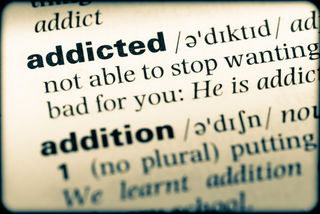
I never thought I’d become a victim of
bullying, but I suppose no one ever sees the target on their back. I assumed that having made it from grade school through graduate school unscathed that the risk was well behind me. Suffice it to say I was utterly shocked when I became the target of intimidation tactics, verbal assault, condescension, mockery, and shaming by two fellow psychologists when I left their offices to launch my own practice.
The “reasonable person” which my husband has told me about from law school is the proxy for the average logical mind and what types of decisions they might make and their thought processes. In my case, the “reasonable person” would assume that many clinical psychologists go on to form their own practices and that such an action is not only expected, but not something that would result in such hostile actions by colleagues.
The process of leaving the practice was traumatizing to say the least. The locks were changed on me overnight, thereby precluding me from being able to get into my actual office when I had patients scheduled; my computer was “searched” for evidence of some grand ploy that I apparently had been concocting while drumming my talons on the desk and cackling; and I was generally treated like a
criminal (real cool when all the women in these interactions are White and you are originally from a former axis of
evil nation).
Eventually things settled down when I moved out and was able to fully
love every moment of doing therapy, writing book proposals, and decorating my office with my beloved fountain beside me. That is, until I was followed 18 months later by these psychologists not only to the same building where I practice, but the same floor. Granted, these women were in the process of a major downgrade. They went from their wannabe mortgage banker digs to a shared windowless office, and had to let their secretary go (who they made get their lunches every day).
While I was not thrilled that I’d have to see the faces of these women who had made life miserable in my sacred space, I figured I could take back stairwells, avoid the lobby, and isolate myself in the office. I did that for a day, until I realized that is exactly what bullies hope for. And frankly, it was quite impractical. Sometimes a girl needs to use the microwave! And so, head held high I marched outside and was in the midst of a lively conversation with our front desk assistants when I was approached by the brawn of the duo.
Suffice it to say, I had been in the lobby for no longer than five minutes for the first time in 24 hours when this psychologist seized the opportunity to get in my face. While I was facing away from her, she just stood there waiting to be addressed and then attempted to engage me in contact condescendingly and with mockery.
I left the interaction shocked that such women can call themselves “pediatric” psychologists. Are these the people who we want our children seeing? Bullying tactics employed by supposed adult professionals? With my heart racing, I looked up resources from the APA for colleague harassment and found very little. Apparently we psychologists work hard at protecting our clients and data, but little is done to protect ourselves when psychologists with malicious intentions attack one another.
Scouring the internet for resources, I found some great ideas and suggestions from sites such as
www.workplacebullying.org which feature a host of tools ranging from attorney and therapist recommendations to an action plan. As a psychologist who is now in this situation, here are a few of the suggestions and ideas (many of which I have employed to deal with bullying) in no particular order.
Name it!
A very helpful tip from sites such as workplacebullying.org above is that naming bullying is very important. We can be hesitant to call out behaviors as bullying. We can feel ashamed, be in denial or feel helpless. But learning to call it what it is helps to legitimize it in your mind and allows to you communicate what is happening to others. Words are powerful and learning to use the appropriate terminology allows us to find allies, resources, and know exactly what it is we are dealing with. Many communities can be built around shared struggles. While we may not want to think of ourselves as victims of bullying, it is simply not our fault. People may be displeased with you, but that will never entitle them to bully and intimidate you.
Get support from friends.
Many times we can feel alone when facing such challenges. I see this all of the time with my clients who are facing
depression. They may feel down or blue and don’t want to burden others. So they remain isolated and suffer in silence. Many times family members and/or partners and spouses can be very helpful. But sometimes they can be too close to the situation. Finding individuals outside of your typical bubble can help you step back and get an objective stance about your situation. As soon as I found out about my bullies following me to my new office, I called up my best friend. As we talked through it, by the end of the call I was cracking up and feeling so incredibly relieved. Her sense of
humorhelped lighten the mood and validate my feelings at the same time.
Calm down and breathe.
When you are a victim of bullying, it can be very difficult to take a step back, breath and move into your logical mind. It can be easy to want to lash out from an emotional space. And frankly, that is exactly what bullies want. They are calculated, cold and attempt to use logic. However, logic is fortunately also where they are severely impaired. Bullying is very obviously not a logical action by any means. Hence those who employ such tactics are not always the brightest crayons in the box. While they may be frightening or intimidating to encounter, you may very well have intellect and cunning on your side. After all, when has a bully ever picked on someone smaller or less capable than them? They simply don’t. They go after those who irritate them due to their inability to outperform them. So as a victim, use whatever your strength is to your greatest advantage possible. It may infuriate them, but assuming you are also taking precautions against your safety, justice will ideally reign in your favor when the time comes.
In the meantime, prioritize your well-being.
Meditate, go to yoga classes, exercise. Treat your body well! If you are in therapy, definitely talk to your therapist about this. If not, consider engaging in
psychotherapy as a safe and confidential space to work through your feelings and gain support.
Consult with an attorney and determine if legal action can be taken.
While the logical first choice in dealing with
workplace issues is going through a Human Resources Department, chances are that they will not always be as swift to help save you. You are dodging every interaction with these bullies left and right, while Human Resources takes its sweet time going through the bureaucratic process and you are sweating bullets.
If it is a financially viable option (which for many it may not be), an attorney can be your best bet at helping you determine your options. Unfortunately, the legal process can also be painfully slow and laws vary by state. Some states allow for restraining orders, but only after court processes which will also incur costly legal fees. Others have stalking orders, and so forth. The entire process can be highly stressful and re-traumatizing as you are forced to re-live your harassment experience over and over again. It is ideal to avoid the court system if at all possible, but sometimes this is what it may come down to. However, a lawyer can talk you through what options can work best to protect you. You may have to file a civil suit if that’s what it comes down to. Again, as you go through this process, connect with friends, try to have a sense of humor, and stay as calm as possible.
Consult with colleagues.
I know, this sounds like a lot of consulting! You may have consult fatigue by the end of the day. You may be discussing this with family, friends, a therapist, your boss, human resources, and an attorney. That’s a lot of already telling your side of the story. While you do not want to engage in gossip or retaliation tactics, you do want to consult with experienced and supportive colleagues. They can help you know what to expect, or if they are as clueless as you are, can at least lend a supportive ear. Typically, the advantage with talking to colleagues is that they know your field, the dynamics between co-workers and so forth and can help you come up with some solutions however minor they may be. If your bully revels in cornering you, then perhaps they volunteer to get up to walk to the bathroom with you. Or they don’t leave your side at the cafeteria. Colleagues can be your first line of defense given that the battleground is now at your workplace.
Make an action plan.
No one can ever tell you what the best course of action may be in your particular situation. Part of the challenge with workplace bullying is that it can take so many shapes and forms. Sometimes it is a colleague who targets you and other times it is a direct supervisor. There could be all sorts of complicated relationships and dynamics at play. Not to mention the possibility of retaliation. So while a friend may vehemently tell you to sue for
discrimination, it must vibe with your needs and circumstances. However, the worst cause of action is none at all. I’ll be honest, this was my first inclination. Ignore it, hope it goes away. And it did for a good 18 months until my perpetrators followed me and started sending me email and trying to engage me in unwanted contact. That’s when I realized action was needed. And again, that action can look different to various folks.
For me, having this space on Psychology Today is one of the greatest blessings. It allows me a forum to educate and empower others while going through a difficult situation ideally so I can help others. Yes, what I’m going through is challenging. But I am 100% certain I am extremely privileged in the number of options at my disposal. I don’t have any plans of leaving my office any time soon, but frankly if it came down to it, I could. Many employees don’t have such luxuries and so their action plans will vary accordingly.
Ideally, whatever the plan is, however big or small, there will be levels (i.e. ,Level 1, Level 2, etc.) to the plan. Level 1 might involve self-care. Level 2 might involve notifying a boss or supervisor. If that doesn’t work, you might graduate to Level 3 which involves Human Resources. If that doesn’t work and you can’t hire an attorney, maybe an old friend from college knows a lawyer on the cheap who can give some free advice or you have a great uncle three times removed who studied patent law but can at least give you some tips. You don’t have to go all the way up the hierarchy initially. Because again, this could be emotionally-driven and more trouble than it is worth.
Consider a formal complaint.
Filing a formal complaint can involve going to a governing body beyond the one in the workplace. Again, this varies quite a bit depending upon the field and its norms. For example, if you are a nurse, and the colleague that is harassing you is a fellow nurse or a physician, you may consider contacting the boards of that profession’s governing body. Many times these bodies do not encourage such reports as they don’t want frivolous reports or reports made in retaliation. However, bullying is serious and needs to be treated as such. You can contact the governing bodies for possible information if it is needed. While these processes can be complicated and stressful, you must also consider whether or not you are protecting a greater good and population. The question you must ask yourself is would you want someone protecting you from a potentially unethical or unlawful (doctor, lawyer, accountant, massage therapist, etc.?)
Fight back through holding your head high.
This one is definitely easier said than done! However, at the end of the day you have to try your best to keep your emotions in check and look at things as objectively as possible. Happy people do not bully people. It’s quite simple. So even though they may try intimidation tactics and attempt to harass you, bullies often pick their targets not because they are weak, but instead those targets are incredibly strong—they just often don’t know it themselves. Victims of bullying are often those who are kind, compassionate, and sensitive. Bullies don’t try to ensnare tough aggressive types in their webs. In his article,
Should Workplace Bullying Be Illegal, Dr. Ronald Riggio suggests that bullies tend to go after those who are highly competent.
Also, sometimes it can help to read between the lines. I was told numerous times by my bullies how they never viewed me as
competition—talk about psychologists attempting mind games! However, the fact that they kept repeating this also revealed their own insecurities regarding failure. In fact, when they thought I might be leaving for private practice, they regaled me with stories of how many times they almost went under and had to close their doors. The phones didn’t ring, they said. Of course the phones didn’t ring, they were bullies! It’s called karma! Regardless, it can help to read for the meaning behind what is actually being communicated. Bullies may attempt to manipulate and frighten, but remember that you are much wiser than they are—after all, that may be a large part of why you have been targeted!
In the end, one of the best ways of fighting back is by being the best version of your authentic self as is possible. When was it that one of the bullies approached me? When I was happy,
laughing and carefree. Unhappy bullies (as they all are) hate to see such levity because of the misery that lurks within themselves. So never stop smiling, and always hold your head up high.
 There is this story about 2 judges who were meeting for lunch. One was matrimonial and the other adjudicate criminal cases. The criminal court judge said “Do you know the difference between my court and yours? In criminal court, my cases involve really bad people who try to look really good. In your matrimonial cases, you have really good people who look really bad.”
There is this story about 2 judges who were meeting for lunch. One was matrimonial and the other adjudicate criminal cases. The criminal court judge said “Do you know the difference between my court and yours? In criminal court, my cases involve really bad people who try to look really good. In your matrimonial cases, you have really good people who look really bad.”
 I never thought I’d become a victim of
I never thought I’d become a victim of 






